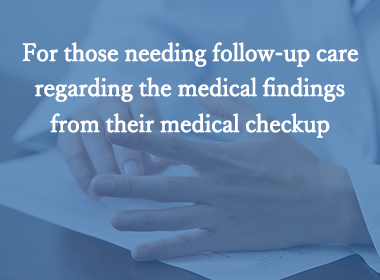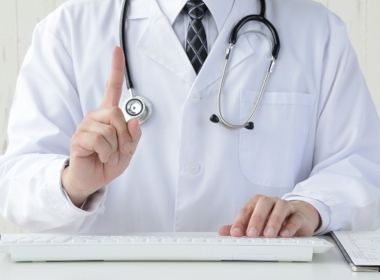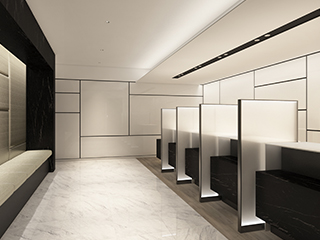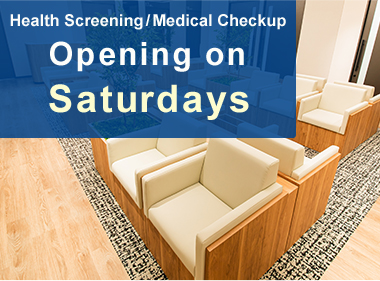For the early detection of gastric and colon cancer
Digestive Specialty Course

Gastrointestinal cancers, such as stomach and colorectal cancers, have consistently been one of the leading causes of morbidity and mortality in Japan. Stomach and colon cancers generally have a high survival rate when detected and surgically treated at an early stage; however, they can be difficult to treat if found in an advanced state. The digestive health screening involves the direct observation of the GI tract using an endoscope, making it possible to spot even the smallest lesion. Although we offer the 2-day fecal occult blood test as a general screening test for colorectal cancer, there is a limit to its ability for early detection of colorectal cancer. The risk of developing colorectal cancer increases starting in your late 40s, therefore we recommend that persons of 45 years and older complete either a colonoscopy or colorectal CT in addition to the fecal occult blood test.

Scroll the table
| 1st | 2nd | 3rd | 4th | 5th | ||
|---|---|---|---|---|---|---|
| Male | Prostate | Stomach | Colorectal | Lung | Liver | When colon and rectal cancer are differentiated, they are ranked 5th and 6th, respectively. |
| Female | Breast | Colorectal | Lung | Stomach | UteUterinerus | When colon and rectal cancer are differentiated, they are ranked 3rd and 8th, respectively. |
| Both Genders | Colorectal | Stomach | Lung | Breast | Prostate | When colon and rectal cancer are differentiated, they are ranked 3rd and 7th, respectively. |
Course / Price
Our digestive specialty course consists of an endoscopy procedure that will directly examine the upper GI tract (esophagus, stomach, duodenum). The endoscopy is done using a sedative, in a relaxing sleep-like state, recommended for persons concerned about potentially feeling nauseous.
*For those who wish to schedule a lower GI endoscopy (colonoscopy), please contact our clinic.
<You can choose between an oral or a nasal upper GI endoscopy exam>
The nasal endoscopy has the advantage of the camera not obstructing the mouth, allowing you to communicate with the attending physician during the exam. However, the oral endoscope has more clarity; therefore, it is recommended for patients with a higher risk of gastric cancer, persons who are 40-50 years old and older, who has or have had a history of H. pylori infection.
Examines the esophagus, stomach, and duodenum using an endoscope. Useful for finding cancers, tumors, polyps, etc. You can choose between an oral or a nasal scope.
Examines the esophagus, stomach, and duodenum using an endoscope. Useful for finding cancers, tumors, polyps, etc. You can choose between an oral or a nasal scope.
-
27,500yen
(colonoscopy) course
Using an endoscope (colon camera), insert it through the anus and check the condition of the large intestine. It is useful for detecting cancers, tumors, polyps, etc.
Using an endoscope (colon camera), insert it through the anus and check the condition of the large intestine. It is useful for detecting cancers, tumors, polyps, etc.
-
44,000yen
- Precautions and notices
-
- [Please review carefully, if you are requesting to use sedation]
-
・If you have been diagnosed with glaucoma or are currently undergoing diagnostic examinations, please consult your ophthalmologist in advance regarding the use of sedation. (Symptoms may worsen with use)
・Please note that if you use sedation, you will not be able to drive a car/motorcycle/bicycle on the day of your appointment. Also, there will be an hour recovery period following the completion of your exam. n.
・For additional precautions and notice, please review Examination Details and Precautions





